Birds, mice, lizards… After a good hunting trip, your cat often brings you dead animals home . He leaves them on your doormat, on the ledge of one of your windows, or even on your bed… Thanks for the gift! But why does he bring back his prey? And what can you do to make him stop? We explain everything!
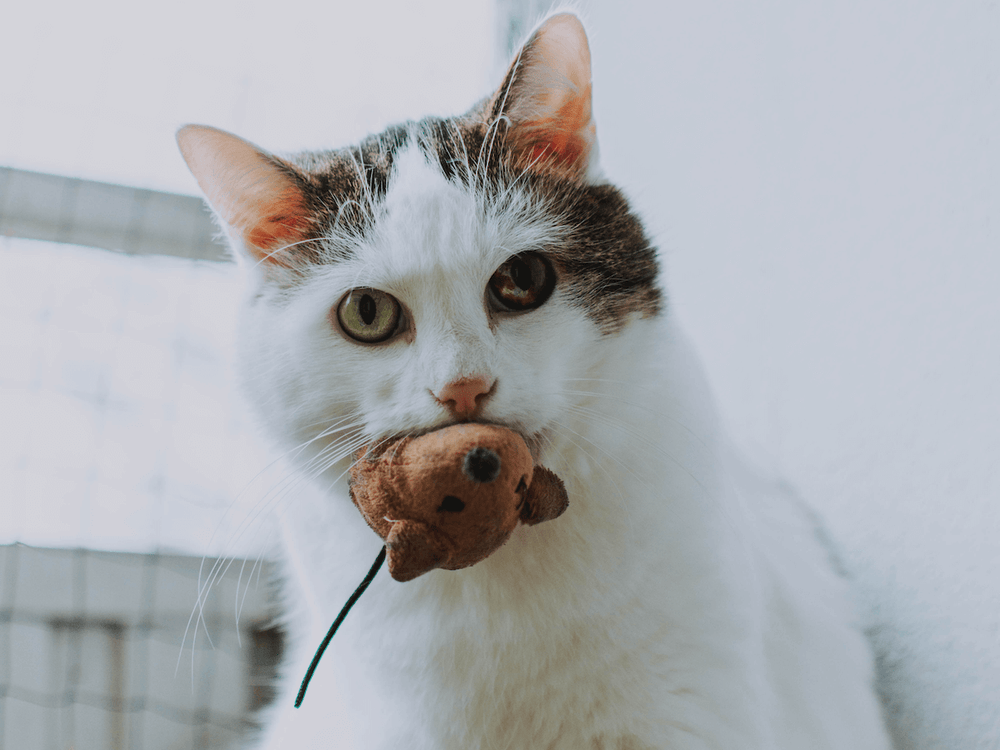
Our cats are the cutest creatures on Earth (in all fairness 😼), but let's not forget that they are also fearsome predators. Their favorite activity? Hunting!
When they have access to the outdoors, our felines spend several hours a day tracking mice, voles, birds, reptiles (lizards) or even insects. Even domesticated, they have retained their instinct as great hunters. It is an innate behavior; from birth, they learn to hunt during games with their brothers and sisters. Their mother also explains and shows them all the basics of feline behavior, including hunting.
If your cat hunts animals, this is completely normal. Its prey is also excellent for its health; it is rich in water (perfect for hydration) and in proteins of great nutritional richness. When it eats a mouse for example, it also “brushes” its teeth, crushing the bones, tearing the flesh, skin, tendons and ligaments of its small prey.
That said, sometimes our cats do not eat their prey directly, preferring to bring it home, namely to us. But why do they do this? Finding dead animals on your doormat, or even on your bed, is not at all pleasant… Thanks kitty, but no thanks…
Why does my cat bring its prey home with me?
Contrary to popular belief, our cats are not giving us a gift.
To eat your prey safely
Like all solitary hunters, the cat consumes its prey either at the place of capture or in its “den”, in a place where it feels safe and far from other predators who could steal its snack.
His “den” is in this case your house (well his house 😼) where he can peacefully eat his little prey, without fearing the slightest danger.
To make reservations
Your cat is not eating the prey it brought back? It may want to store up food for later because it is no longer very hungry.
Hunting usually whets the appetite, but your little hunter may be full enough and prefer to enjoy his snack when his stomach is meowing with hunger. Much like us when we don't have room for dessert, we prefer to save it for a snack or another time of day.
In cats, hunting is not always motivated by hunger . They may want to capture prey, just because it has passed under their whiskers. When we throw a bottle cap or shake our fishing rod in front of them, our cats immediately go into hunting mode, even though our toys are not edible (and they know it very well).
To set an example
Our cats perceive us as big cats, except that we make strange sounds, we have less fur and we walk on two legs. And above all, we don't hunt! For our felines, this is an aberration.
So when he brings you his prey, he shows you the example. With great pride, he looks at you and thinks: “Human, look how it should be done. You are too bad!”
This explanation is just a theory, but at Ziggy, we believe in it a lot! 😹
Why does my cat play with its prey?
Your cat brought you a mouse, and there he is playing with it: he grabs it with his front paws, then hits it a few times, bites it, etc. He stops for a few seconds and attacks it again.
Rest assured, your mustachioed guy is not a pervert. He just makes sure his prey is weak enough to finish him off or that he doesn't fake his death. Clever!
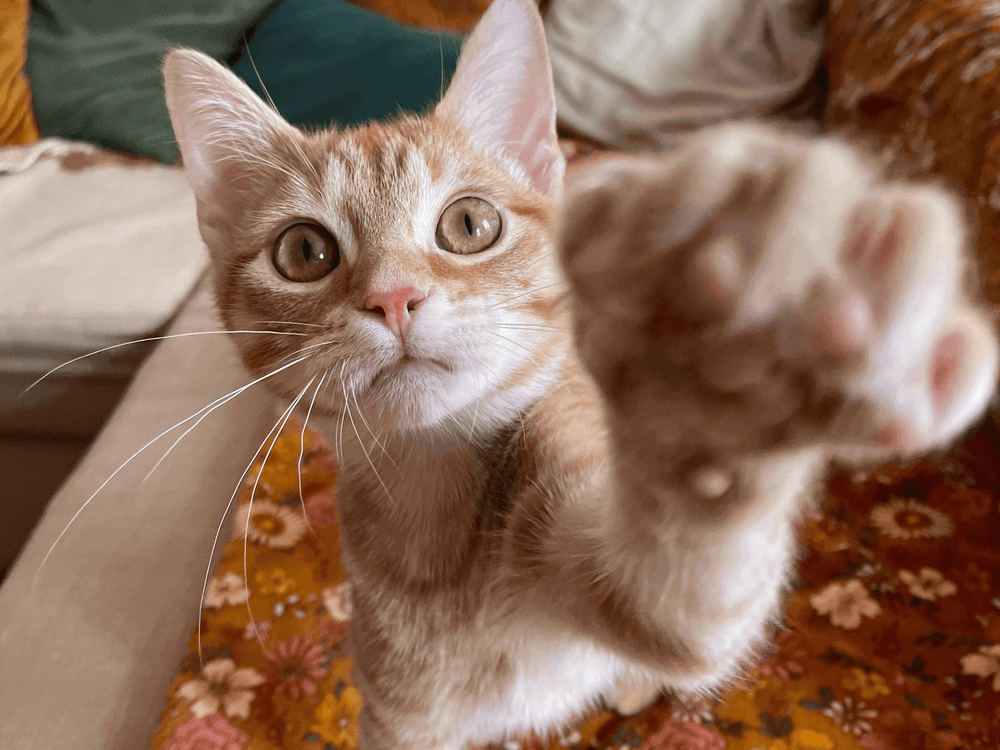
My cat brings dead animals home, what should I do?
As stated above, hunting is a natural behavior for your cat.
Never scold your cat!
It's very tempting to scold him, because yes, it's very annoying to find dead animals at home. But don't make this mistake; your cat won't understand why, and above all, you'll push him to hide his prey elsewhere. Your home will no longer be associated with a safe place for your mustachioed one.
When he brings you a prey, try instead to congratulate him and offer him one of his favorite Ziggy pâtés instead. He will gradually understand that he also has very good food at home and that he does not need to bring back or keep his captured prey.
Play with your cat regularly
By playing a little more with your cat, he will be a little less obsessed with hunting. This is what researchers at the University of Exeter in England have demonstrated.
For their study , the researchers selected 219 households with at least one cat that has access to the outdoors and hunts regularly. Several methods aimed at reducing predatory behavior in these cats were tested, including play sessions.
Result: in families who spent between 5 and 10 minutes a day playing with their cat, reproducing hunting scenes, predation activity decreased by 25%.
So don't hesitate to devote a little more time to him each day, by playing fishing rods, casting corks, etc. Your play sessions will stimulate his hunting instinct and at the same time strengthen your relationship and soothe him. Physical activity in our cats, as in us, allows the release of endorphins, hormones of well-being. It is therefore a real anti-stress asset!
If you have several toys at home, do not leave everything at his disposal, he would get tired of them. Instead, use a different toy every day, because in nature each prey is different. This will motivate his hunting behavior.
Is your cat not very receptive to your games? Don't hesitate to consult our article; why doesn't my cat play. Several factors can explain its behavior.
A colorful necklace
You can never stop your cat from hunting, but you can try to limit its “killing” by putting a colorful collar on it, for example.
Easily spotted by its prey, it will have a little more difficulty capturing birds.
Offer your cat a varied and quality diet
As we saw earlier in this article, hunting is not always motivated by hunger, but for some cats, hunting allows them to consume other foods that they cannot find in their bowl.
In the study cited above, the researchers also tested, in addition to games, another method: offering cats a grain-free diet in which the main source of protein was quality meat. Result: cats fed a high-protein, grain-free wet diet saw their predatory activity decrease by 36%!
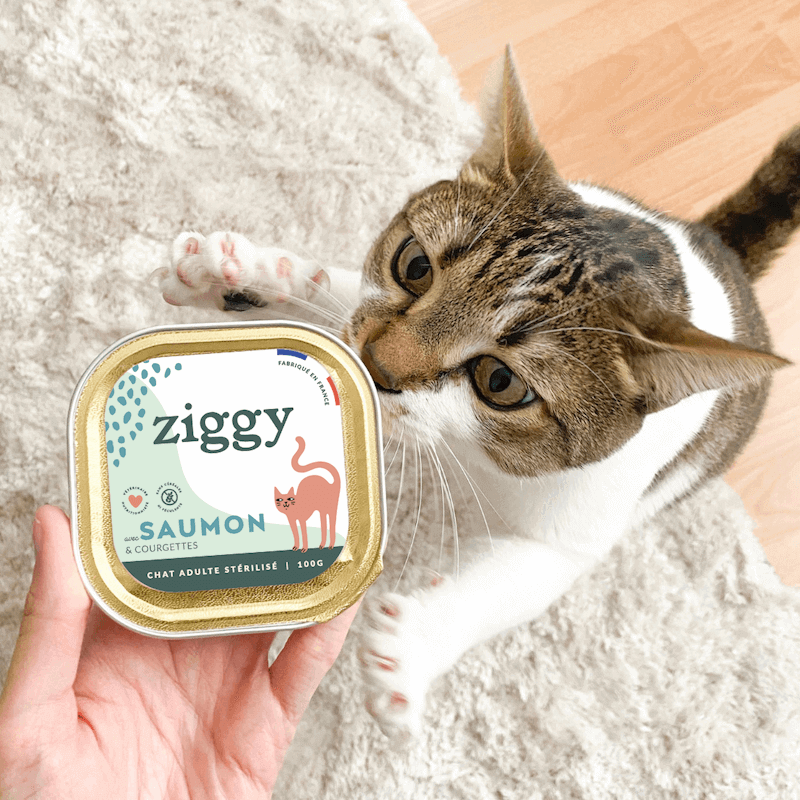
At Ziggy, we will always advise you to offer your cat a mixed diet , namely kibble and pâtés, but with preference given to pâtés.
Wet food (pate) is the food that comes closest to the natural needs of our cats. They are like mice in a box!
The benefits of pâté for your cat
Unlike kibble, pâté is very rich in water, and therefore very hydrating for our cats, who mainly meet their water needs through their diet. In nature, they hydrate themselves mainly through their prey. By consuming field mice, they ingest all the water contained in their tissues.
It prevents the risk of urinary disorders and reduces the risk of overweight, obesity and diabetes , because it is very low in calories. And for cats who are too greedy, wet food also has the advantage of being satiating; it provides volume in the stomach.
To satisfy the needs of your little hunter, bet on pâté. But be careful with the quantity, because not all commercial pâtés are equal.
Some wet foods are deficient in certain nutrients or minerals, too high in carbohydrates or contain low-quality proteins, which do not provide much nutritional benefit to your beloved pet.
At Ziggy, we love our cats like members of our family, and we feed them accordingly with the best for their health. All our kibble and pâtés , formulated by Veterinarian Dr. Géraldine Blanchard, an expert in feline nutrition, are rich in quality proteins, low in carbohydrates and low in phosphorus to preserve your cat's fragile kidneys.
In summary
To limit your cat's "offerings", play with him as often as possible and offer him quality wet food.
By changing his food, you could help reduce your cat's impact on biodiversity, while taking care of his health. Isn't that great? 😺


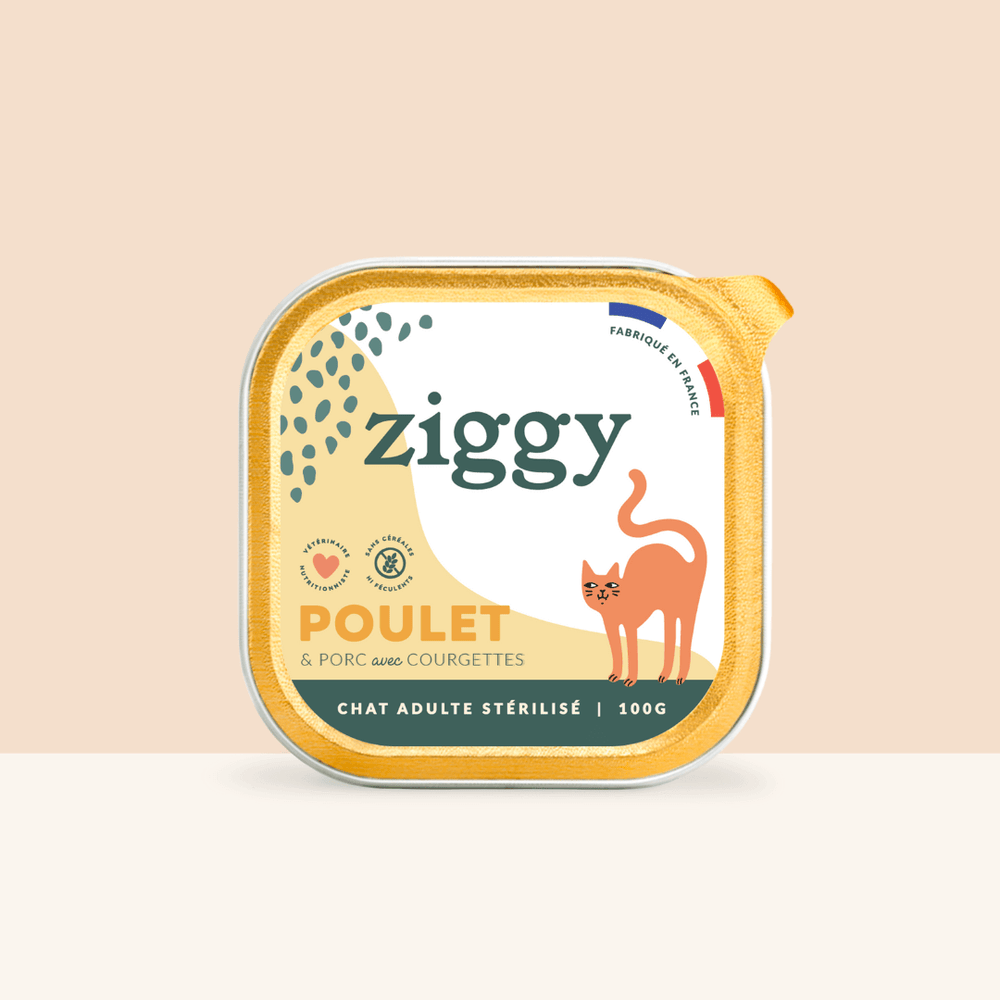
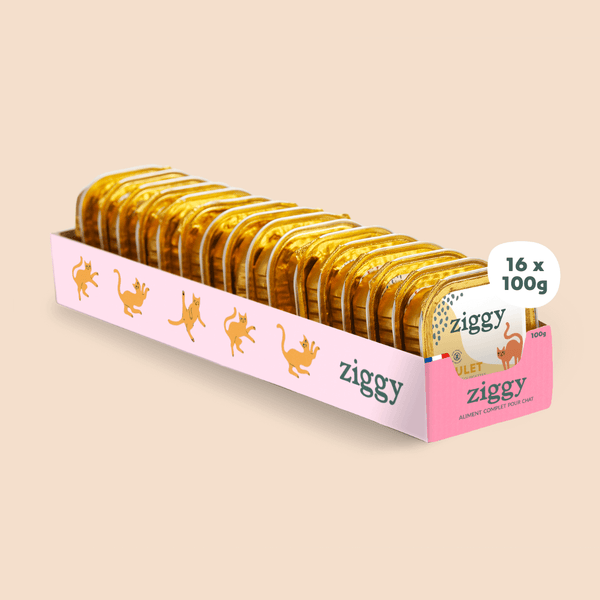


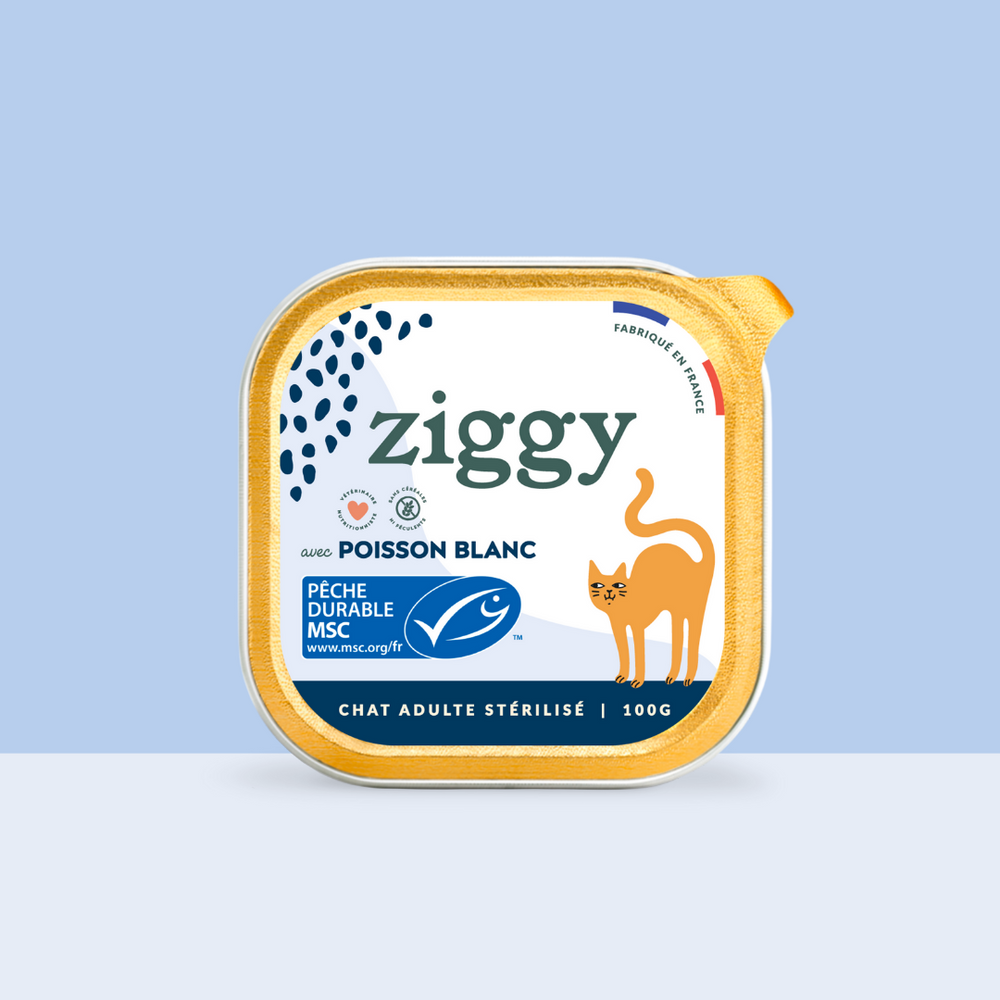
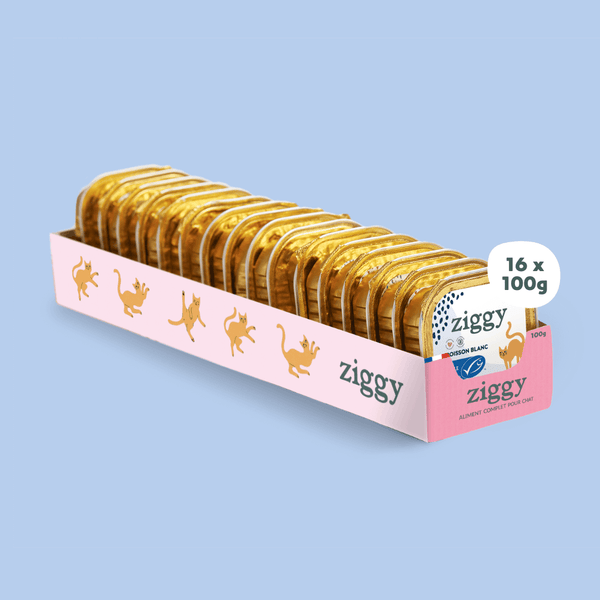

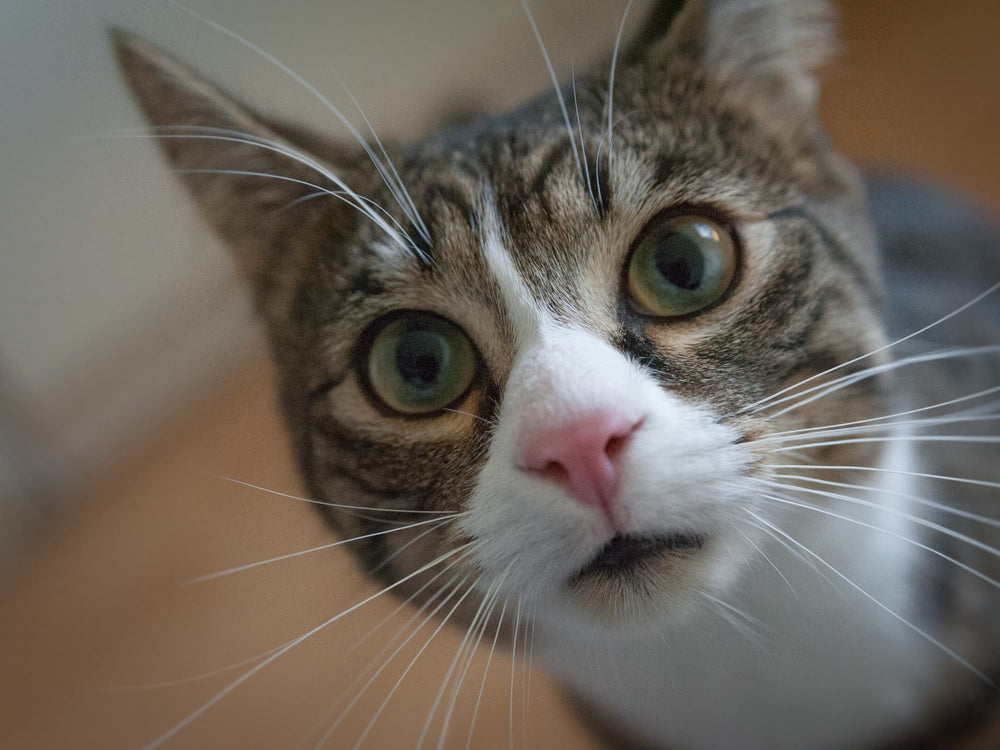
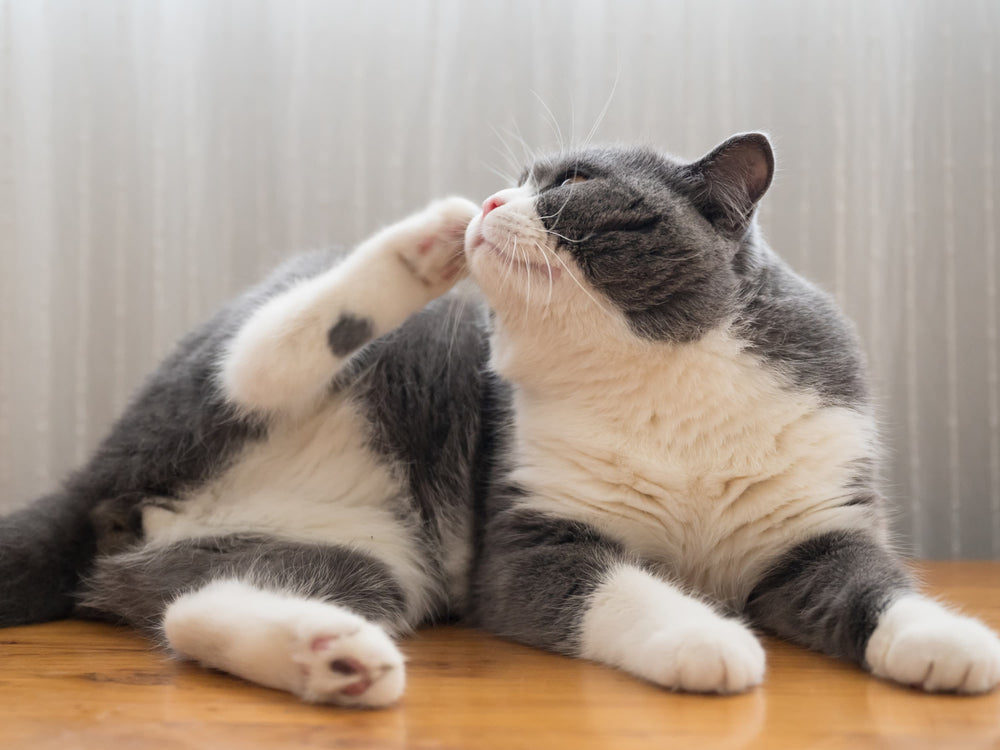

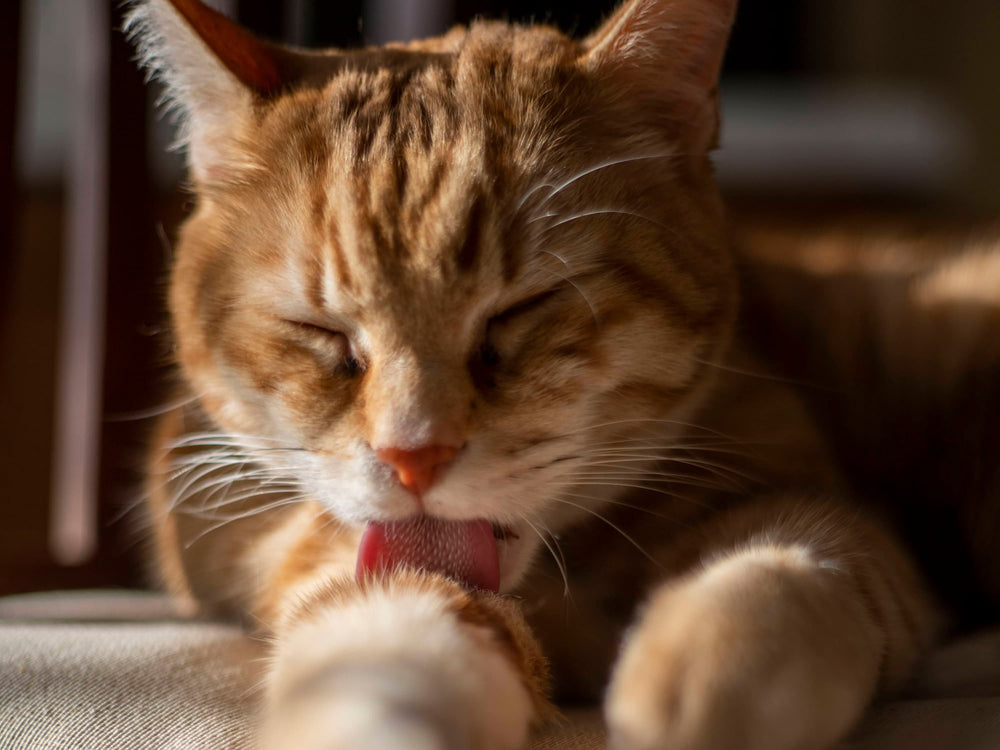
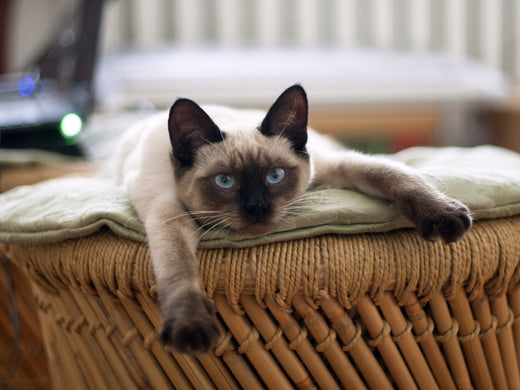
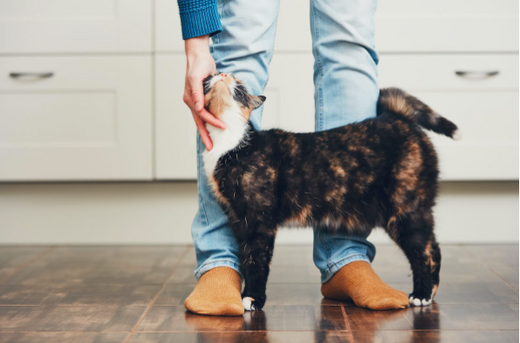
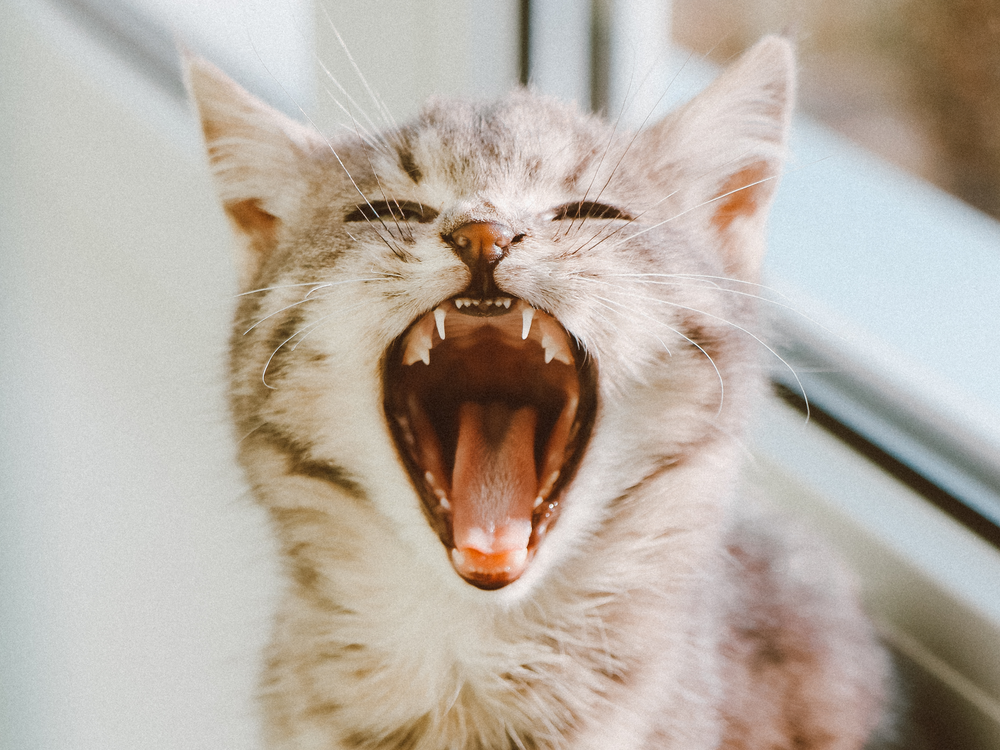
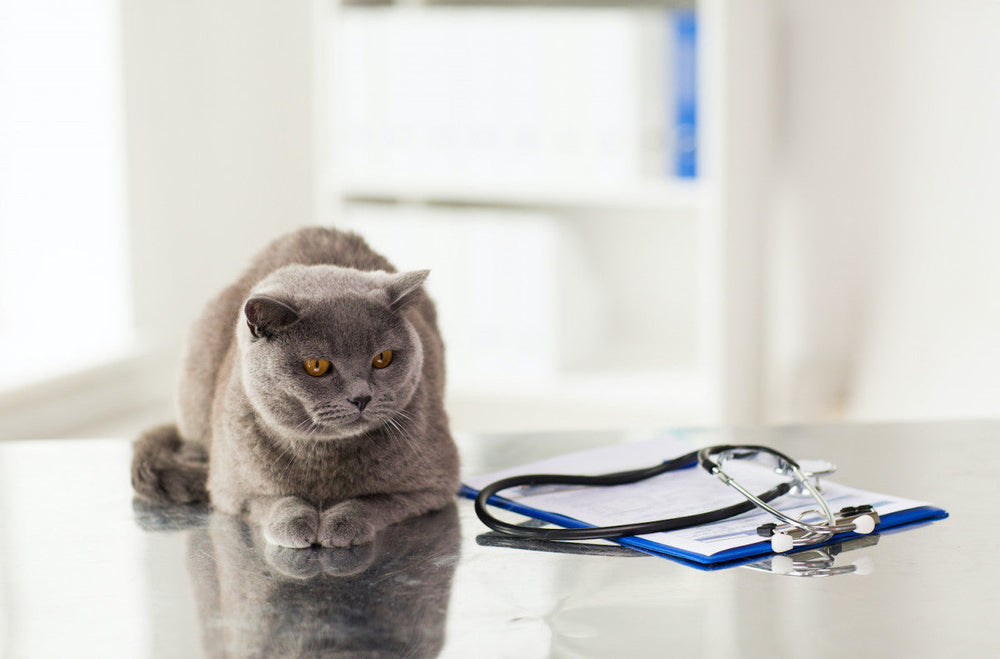

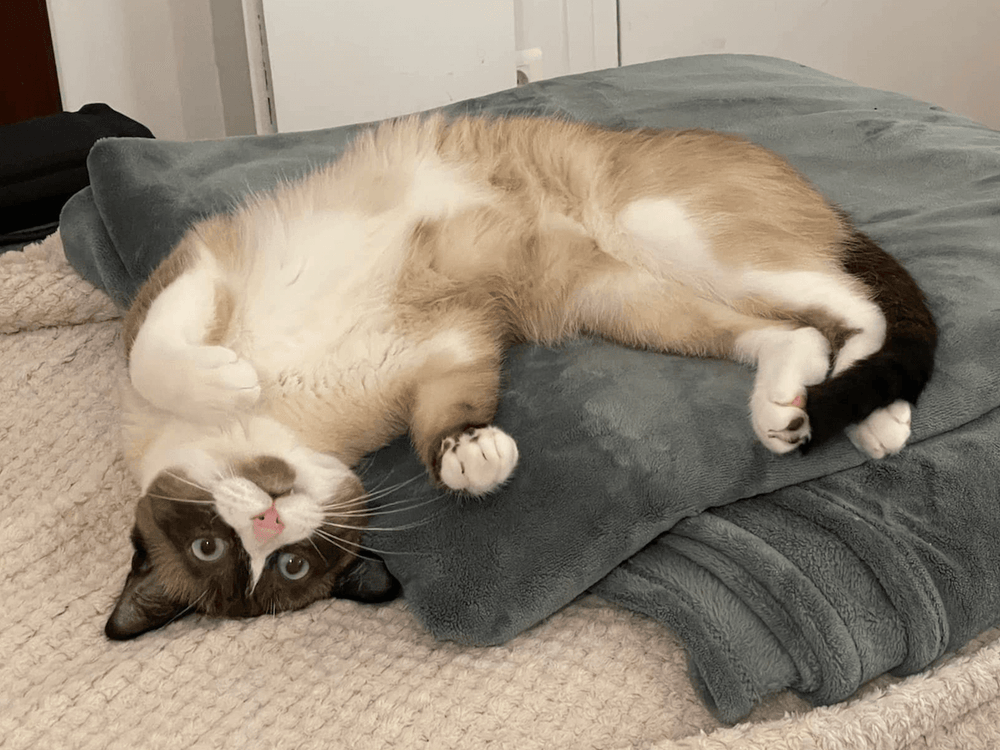
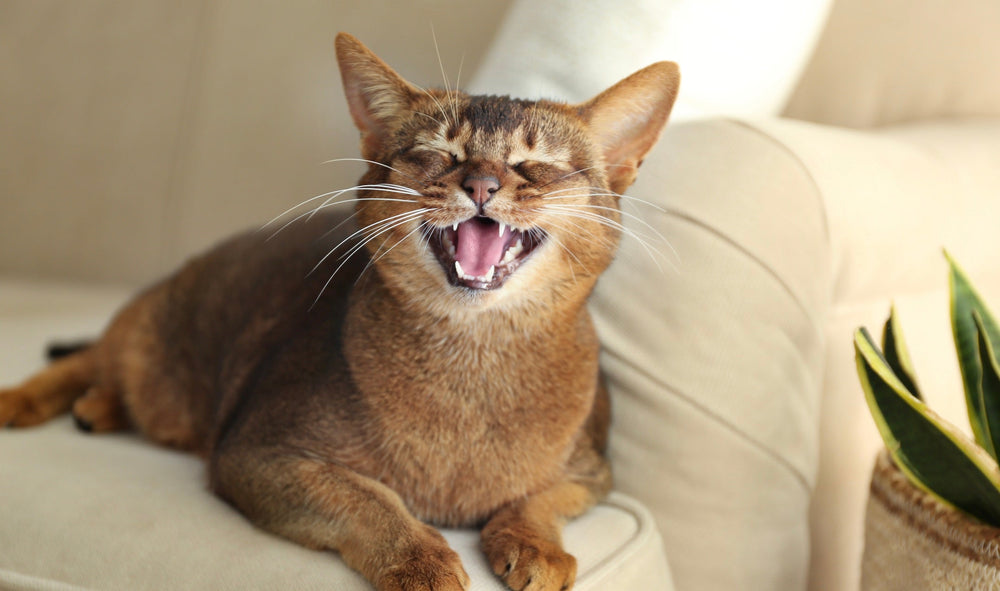
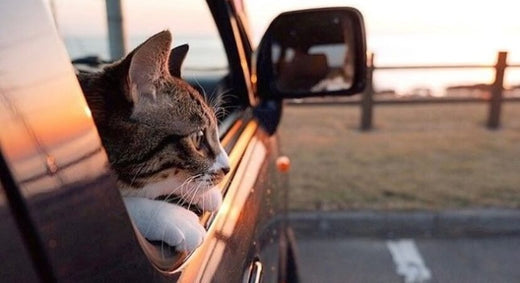
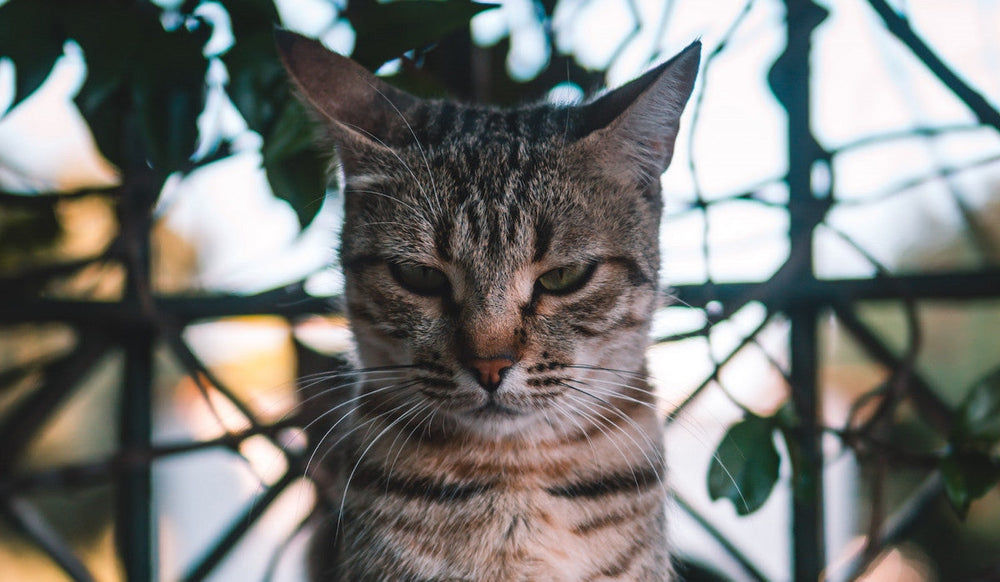
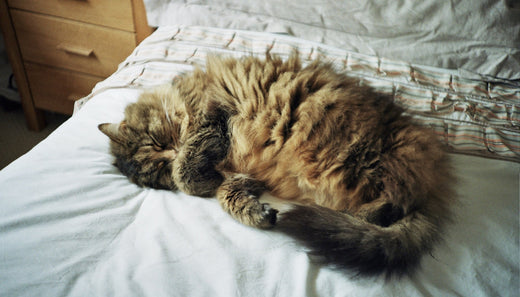
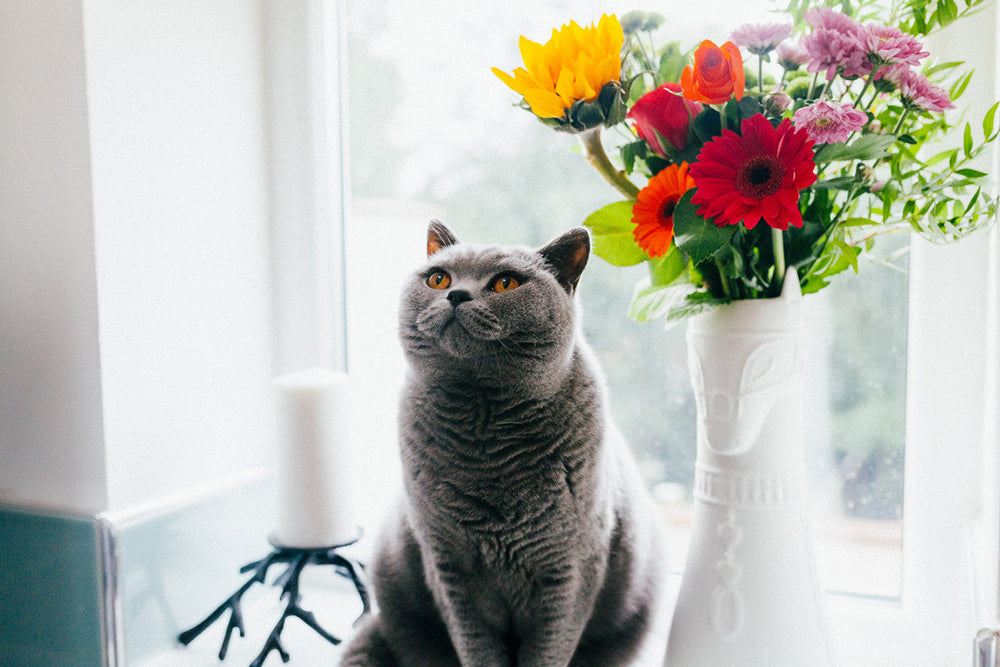



La plupart du temps mes chats ramènent leurs proies vivantes. Je suis devenue experte en sauvetage de souris,de lézards,de lérots et parfois d’oiseaux. Je ne peux pas m’empêcher de les sauver. Mes chats ont plutôt tendance à me laisser faire. D’après ce que je viens de lire, je pense comprendre qu’ils prennent cela pour un jeu . Du coup ils ne sont pas prêts de cesser de me les apporter ! Cette nuit un rat (mort) sous mon lit…Je me suis, disons, un peu énervée…J’ai guidé fermement le chat et sa proie vers la porte. Bien sûr je m’en veux !
Mais je sais par expérience que mes chats vont continuer à rapporter leurs proies dans l’appartement. Avant de franchir la chatière ils grimpent l’escalier, avec leur proie dans la gueule…Parfois un pigeon…
Merci pour cet article mais laissons nos petits moustachus chassé tranquillement. Le collier pour les chats sont dangereux beaucoup d’accident avec…. Et la clochette est désagréable pour les chats qui ont une audition sensible aux bruits. Alors laissons-les vivre leur nature 🙂
Leave a comment